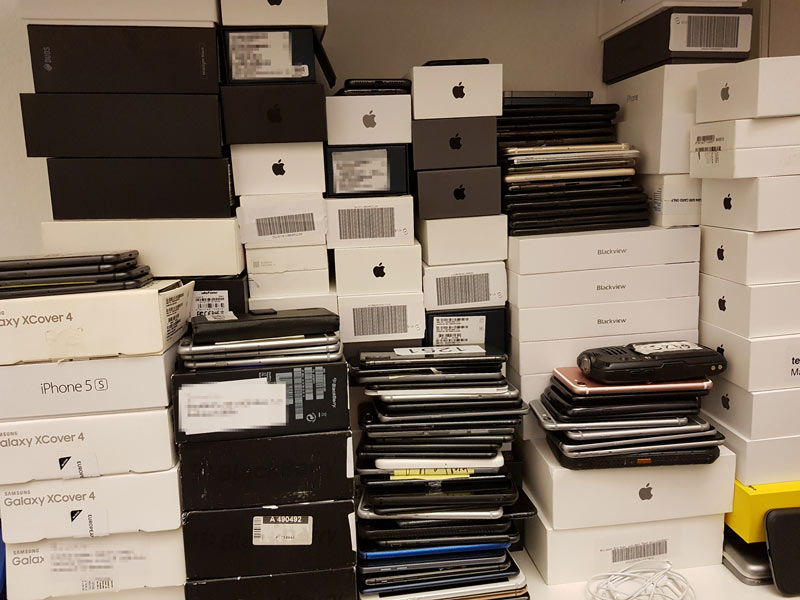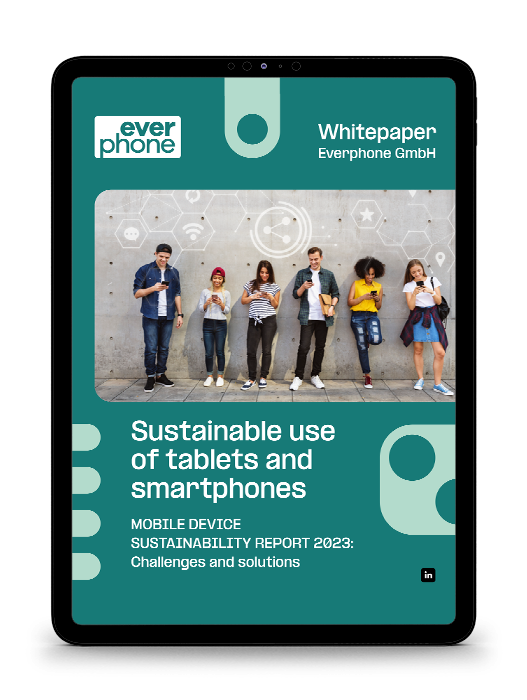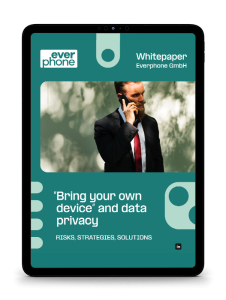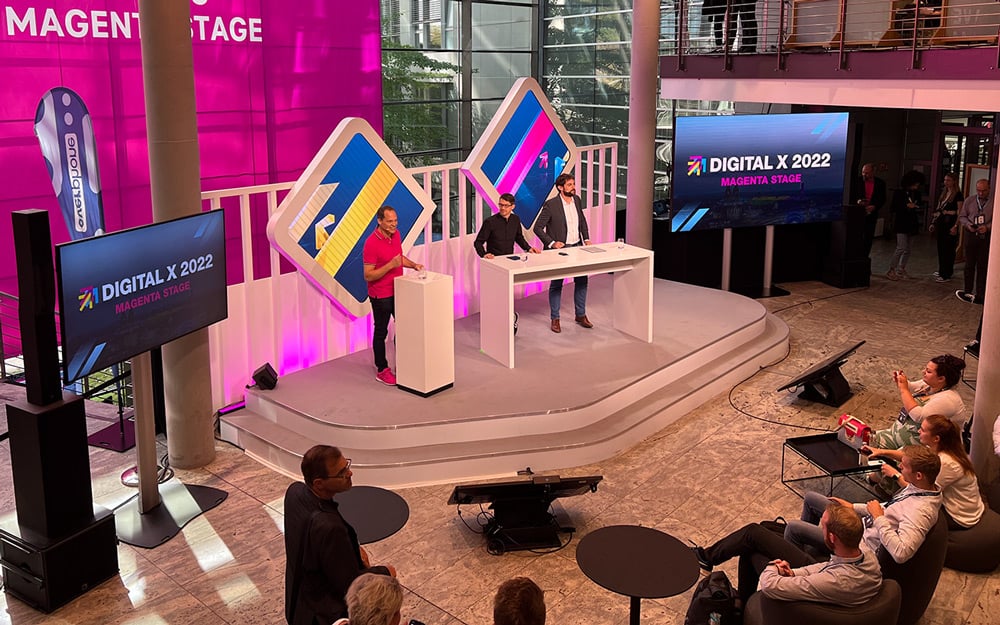Everyone is talking about digitization, user-centricity and usability. However, some IT managers do not want to take part. That’s surprising, not acceptable–and a shame, in my opinion.
IT management in the attitude of denial
Please don’t misunderstand me: Of course, it is far from my intention to bash an entire professional group. Such things inevitably end up in generalizations and sweeping statements that ultimately do no one justice and prejudge everyone.
Fortunately, there are also plenty of counterexamples: IT decision-makers who not only see digitization as a major annoyance on their to-do list, but also see it as an opportunity to move the company forward.
Fortunately, they do exist: the digital doers who are prepared to make changes and also want to use the individual measures to make their colleagues’ day-to-day work easier. The contributions to our biweekly Digital Makers podcast unanimously show that this is being met with a high level of acceptance by those involved.
But what I hear in discussions with customers and what my colleagues in sales report is sometimes so outrageous that I just have to get my frustration off my chest: It’s about certain people in charge in the IT departments.
Head of IT. IT managers. IT strategists. With an attitude of denial.

“I don’t give a damn about the GDPR!”
What the typically male IT managers say in conversations is strong stuff. Operational requirements are simply denied, legal principles are casually brushed aside, and the wishes and needs of colleagues are consistently ignored in a tone of conviction, with gentlemanly jokes on top.
GDPR?
Not interested.
User-centricity?
They can be happy to be working at all.
Usability?
Not my problem, you just have to adapt.
Ticket-generating incidents at the help desk
What bothers me the most is that if IT doesn’t see itself as an organ in the company that also works, thinks and plans for its own employees. When the colleague is only seen as a ticky-tacky incident at the help desk, then something is fundamentally wrong – both humanly and professionally. Then the tail is wagging the dog.
Is there an explanation for this astonishing refusal?
Have buzzwords like digital transformation, digitization or Industry 4.0 become so overloaded that some people simply switch off and tune them out? Or is it simply perplexity and SMEs are still sitting, as I wrote elsewhere in 2016, “in front of the digital orange and wondering how best to open it now, because it’s round on all sides”?
Do you know? Then leave me a comment, I’m curious!
“GDPR? Oh, stop it!”
A concrete starting point in our discussions is always the GDPR . I can understand that the topic is about as popular as waves of the corona infection or an appointment for root canal treatment. But there is no way around it.
One should think – in reality, however, one encounters a surprising will to ignorance. Statements like “I don’t give a shit about the GDPR” are surprisingly common quotes from decision-makers. Further examples?
GDPR? Oh, stop it. We have completely different problems here!”
or
The GDPR is a government lie, just like Corona!”
or
It’s all crap with the GDPR! Nobody can see through it anyway, so you might as well leave it out. We don’t need it.”
It’s clear to me that people don’t want to talk about it. Nobody does, and it’s not sexy.
However, it is highly problematic when IT leaders refuse to accept that the GDPR requirements will not be self-fulfilling. And it won’t go away on its own either. One marvels.
“I have to channel the cost pressure”
If the GDPR is not a problem, it is of course only logical to rely on the BYOD strategy (“bring your own device”) for mobile devices. Employees “simply” use their private devices at work: It’s much cheaper and everything else is unnecessary!
The company policy stipulates that only the company’s own devices are used. Colleagues only get a quick call when they’re out and about. They don’t need a cell phone for that..“
What happens to the business data on the BYOD devices, whether their operating system is up-to-date? What is stored in which cloud? Whether company contacts via WhatsApp or Clubhouse are synchronized with US servers? It doesn’t seem to matter.
We have already addressed the fact that BYOD has been dead for a long time for other reasons and can no longer be revived, and we have worked out a fairly clear stance on it.
Incidentally, if you confront business partners with the overwhelming BYOD risks, the counter-argument is often made that the employees themselves would like to be able to use their own devices.
This is particularly true in one case: if the alternative from the company is the cheapest smartphone available and the purchasing department, which is groaning under chronic cost pressure, is urged by IT to simply buy the cheapest one. It then sounds like this:
We simply buy the mobile phone at a cheap rate on eBay and that’s just the way it is. And if it breaks – then we’ll just buy a new one, for heaven’s sake.”
or
“The work phone is to be treated as official business, the employee is not allowed to choose one. Why would he? We’re not handing out wish lists here!”
This insight (in the context of “choose your own device”) says a lot about the understanding of user-centricity and productivity that prevails among some IT executives.
“My colleagues don’t need that.”
Time and again, disappointed employees tell us that they put the useless 100-euro entry-level company cell phone with mini memory, snail pace processor and 640-pixel TFT directly in a drawer and never touch it again.
That’s understandable if you’re used to high-performance devices in your private life, but your employer only provides you with “one-size-fits-all” junk under the guise of cost-consciousness.
Of course, this doesn’t make mobile working any fun. Neither does it create appreciation or employee satisfaction, nor an increase in productivity. On the other hand, isolated solutions and workarounds are virtually pre-programmed. And potential synergy effects such as simplifying IT governance or centralized software distribution don’t even get a chance.
Double standard
It goes without saying that C-Level and the IT management themselves are not fobbed off with plastic cell phones. Here, procurement reaches for the top shelf from Apple or Samsung quite naturally and with grand gesture. Anything else would be impractical – or embarrassing when you meet fellow CEOs and CIOs!
The paradox is that people don’t even begin to understand that a company cell phone can also be used as a benefit for employees – even though they really appreciate using a good device themselves.
The prerequisite for using it as an employee benefit is, of course, that the device can also be used privately – nowadays this can be solved absolutely unproblematically with clean data separation using MDM software. This is even good for the environment because users then only have one device in operation instead of two.
Actually a no-brainer. Would you like a few false objections?
Private use? We don’t allow that. They shouldn’t play on their cell phones during work!”
or
We have already considered switching to tablets. Then employees can’t secretly fiddle with their cell phones under the desk!”
or
“The employees have signed that they use the device exclusively for business purposes. So we don’t need MDM.”
You can’t help but wonder why this is done. The succinct answer: Because that’s how it’s done.
“We’ve always done it this way”
You don’t have to be a philosopher to recognize the “we’ve always done it that way” fallacy. However, it is astonishing that in a field of activity where rapid technical and organizational innovation is the basis of all action, people cling so rigidly to the status quo.
When IT managers cite the fact that “it has always been done this way” as the only argument for their procurement, you know: There is no change management here because change per se is undesirable. Change? It just messes things up.
And then you wonder why business documents are still received in PDF format, printed out, crossed out, signed, scanned and faxed back, while the IT manager reports the efficiency gains achieved by the IT infrastructure to the C-level in cover-my-ass mode.
Sustainability 0.5

The employees aren’t happy, and neither is the environment: just as a side note, it should be mentioned that defective devices of course also disappear in some IT drawer because repairing, replacing or even just disposing of them would be too costly. In some companies, for example, hundreds of smartphones oxidize in the IT “poison cabinet” – in our experience, up to 20 percent of the entire smartphone fleet!
It’s not just a waste of money. Sustainability also looks different.
That’s not going to work. And that’s not because of the technology, but because of the mindset.
Digitization is waiting. And it has been for a long time.
























